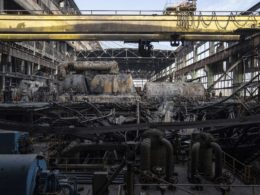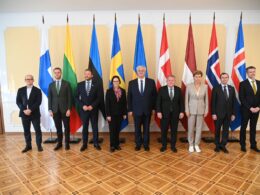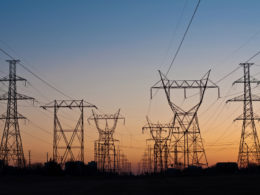An international alliance has been announced between the UK, US, Canada, Japan, and France, aimed at displacing Putin from the global nuclear energy market. According to a statement following the G7 Energy Ministers’ Meeting in Sapporo, Japan, the five nations plan to leverage each country’s civil nuclear power resources to undermine Russia’s grip on supply chains.
The statement follows the June 2022 Group of Seven Leaders’ Communique, which expressed the leaders’ intent to assist countries seeking to diversify their nuclear fuel supply chains.
UK Energy Security Secretary Grant Shapps emphasized the importance of this agreement in supporting Ukraine and defeating Putin, stating, “This is the next vital step, uniting with other countries to show Putin that Russia isn’t welcome anymore.” The collaboration is intended to cut off a significant revenue stream for Putin’s regime, which has been funding its war on Ukraine.
Particularly, the five nations identified potential areas of collaboration on nuclear fuels to support the stable supply of fuels for the operating reactor fleets of today and enable the development and deployment of fuels for the advanced reactors of tomorrow.
The collaboration will focus on strategic opportunities in uranium extraction, conversion, enrichment, and fabrication, supporting climate, energy security, and economic resilience objectives. It will aim to establish a global commercial nuclear fuel market, leveraging the resources and capabilities of each country’s civil nuclear sectors.
“This strategic collaboration aims to increase the depth and resilience of our nuclear fuel supply-chains, while supporting the wider geostrategic objectives of further reducing reliance on Russia in the nuclear fuel supply chain for the long term and increasing the availability of commercial free-market alternatives in the supply of civil nuclear technologies to third countries,” the statement said.
In addition to this new alliance, G7 nations have agreed to accelerate the phase-out of unabated fossil fuels, focusing on coal. The group has set new collective targets for offshore wind and solar energy, aiming for 150 GW of offshore wind capacity and 1,000 GW of solar PV by 2030.
Background
The German government has recently called for the imposition of EU sanctions on Russia’s nuclear industry amid Russia’s armed invasion of Ukraine.
Ukraine has been asking the EU to impose sanctions on the Russian nuclear industry for many months, but to no avail.
Currently, 17 VVER-440 units are operating in Europe; for them, there is currently no alternative to Russian fuel. Ukraine, for its part, has already started production of components for VVER-1000 fuel units and will subsequently start production of fuel for VVER-440 units.
Related:
- Why Russia is still making money on energy sales and how to change this
- Windfall tax on oil and gas industry: a perfect way to fund Ukraine’s reconstruction





